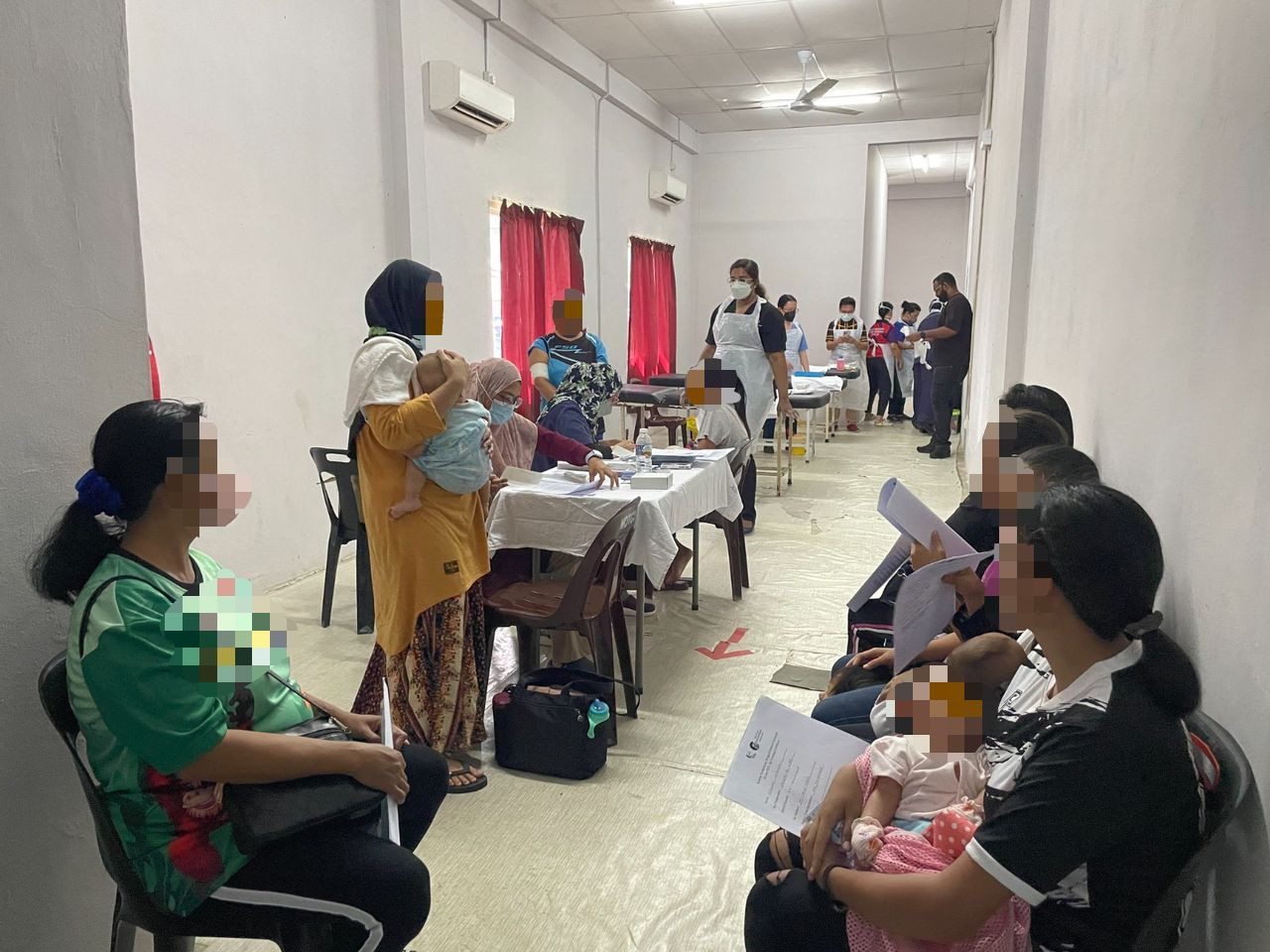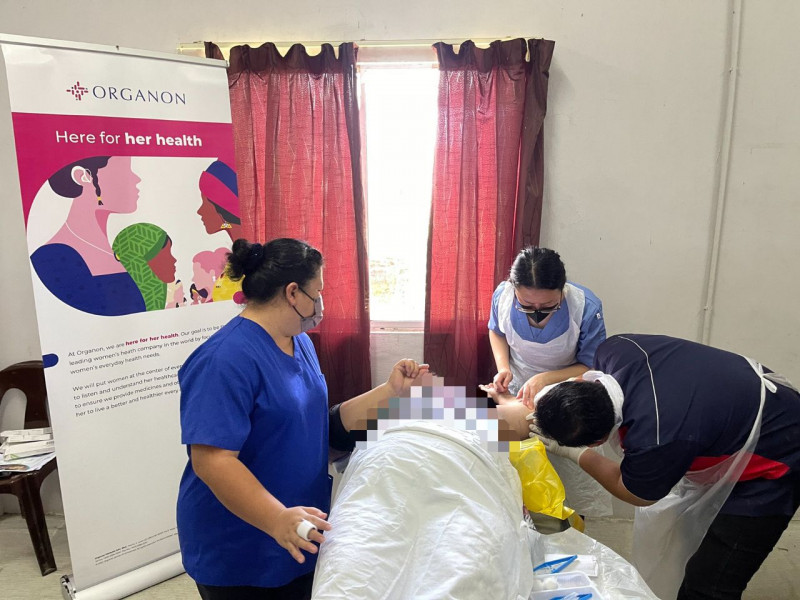SANDAKAN – The use of contraceptives in Sabah rural folk’s family planning remains scant, medical professionals observed.
Dr Woweham Sindeh, a family medicine specialist at the Telupid Health Clinic, said this is because many women in remote areas such as Tongod face obstacles in getting their hands on effective contraceptives such as Implanon.
Implanon is an implant that provides long-term birth control for women, with effective protection of up to three years upon insertion.
While the government through the Health Ministry (MoH) has been providing free Implanon for women, the numbers distributed are limited.
Tongod, located in central Sabah, is one of ten poorest districts in the state, according to the 12th Malaysia Plan report. It is the largest district in the state, with about 42,000 people, who mainly work as palm oil planters, rubber tappers, and farmers.
The district, which is under the same healthcare jurisdiction as Telupid and Beluran, only gets three to five Implanon rods a year.
Tongod would usually end up with nothing, because there are also patients in need of Implanon in Telupid and Beluran,” Dr Sindeh told The Vibes.
Trapped
Without the adoption of efficient family planning methods, the number of high-risk pregnancies will increase, and this could keep families in rural households trapped in poverty.
Dr Sindeh said that awareness of family planning is low in Tongod, particularly in extending pregnancy gaps to at least two years.
Among factors behind the said phenomenon, he said, is poor health literacy among villagers.
Dr Sindeh also said villagers’ access to health facilities is compromised due to their remoteness, as some mothers reportedly need to travel over 50km in poor road conditions to the nearest clinic for effective contraceptives.
Mothers who fail to put an appropriate gap between their pregnancies, especially those with existing medical conditions, risk maternal complications like bleeding during pregnancy, and foetal complications like low birth weight and premature delivery, he warned.

Aware, but not accepting?
Family planning entails using methods to decide on the right time to have children, allowing them to space pregnancies, and determine the appropriate number of children they want to have.
Families in interior districts appear to have more children than families living in urban areas. Does this mean that family planning awareness is low among rural folk?
Dr John Teo, a private obstetrician and gynaecologist based in Kota Kinabalu, said this is not the case.
Dr Teo, who has been a family planning advocate for about 25 years, said rural folk want to space out their pregnancies, but they have limited knowledge of contraceptive methods and lack access to contraceptive supplies.
“Awareness about family planning doesn’t necessarily equate to usage and acceptance of the methods.
“Rural women usually know about family planning, but they don’t or cannot use those methods due to various reasons.
Generally, their education level is lower…there also tends to be more beliefs in myths and misinformation regarding family planning and the importance of spacing childbirth (among them).”
‘Vicious cycle’
Dr Teo noted that having more children and less household income would erode rural folk’s ability to use contraceptives, as that would require them to spend money or take time off to visit clinics for contraceptive supplies – neither of which they can afford.
“The end result is more children, which further decreases their ability to use contraceptives. It’s a vicious cycle.
“The contraceptive methods provided by government clinics are free, but the transport to the clinics and the ability to arrange alternative childcare while mothers go to clinics are not free.
Sometimes mothers have to bring all their children to the clinic, because there is no one to look after them, which further increases their transport costs and even food costs while they are at the clinics,” he explained.
Like Dr Sindeh, Dr Teo concurred that the long distance between their homes and healthcare facilities and poor road conditions is among major factors behind rural mothers not using contraceptive methods.

Removing stumbling blocks
According to a study from the Faculty of Medicine and Health Sciences at Universiti Putra Malaysia, in 2019, contraceptive usage in Malaysia is the lowest in the Asian region, with the contraceptive prevalence rate shown at only 32.3%, significantly lower than the global rate of 63%.
Dr Teo said that these statistics have been similar for the past few decades, so Malaysia’s data, including that of Sabah, has not improved in decades.
“There is no state-by-state breakdown, but if one is to guess, Sabah being one of the poorer states, with its diverse communities spread so far apart in the interiors, (Sabah) may have even lower figures compared to the national average,” he said.
Dr Teo suggested that the government plays a role in making contraception within closer reach of rural folk by increasing the supply of more long-acting family planning methods, such as the intrauterine contraceptive device and implants, so that villagers do not need to travel to and fro between their villages and the clinics often.
The government should also look into increasing the villagers’ level of education, increasing their income, and setting up more healthcare facilities around in the interior areas in Sabah,” he said.
Life-changing outreach
Data from all seven health clinics in Tongod and Telupid shows that about 150 to 200 women in the district face high-risk pregnancies.
Two months ago, Dr Timothy Cheng, an orthopaedic surgeon at the Duchess of Kent Hospital and Sandakan Orthopaedic Association president, met Dr Sindeh and came up with the idea of getting Implanon supplies to women in Tongod.
Tongod is a two-hour drive down a pothole-riddled road to the nearest specialist hospital – the Duchess of Kent Hospital – which means that pregnant mothers that suffer from sudden antenatal emergencies or ill newborn babies often receive delayed medical treatment, Dr Cheng explained.
Dr Cheng had subsequently successfully secured a donation of 30 Implanon rods from Organon, a global healthcare company, and the implants were administered to women in Kg Entilibon at an outreach programme on Saturday.
These women were selected from seven health clinics in the Tongod district who would have high-risk pregnancies if they got pregnant.
While Dr Cheng said he was surprised that Organon was open to sponsoring the programme, he hopes he can conduct more such programmes, seeing that the selected women were thrilled to receive the sponsored units.
Among the recipients was a woman aged 48, who has nine children and recently had a miscarriage two months ago.
“An implanon rod costs about RM400. This outreach programme is the first of its kind to administer such a large number of Implanon rods.
Compared to the yearly supply of three to give rods to the whole district of Tongod and some major specialist hospitals in Sabah, 30 Implanon rods form a significant number indeed, and have truly made a difference in women’s lives,” said Dr Cheng.
The programme, which also saw a family planning talk, was jointly organised by the Sandakan Orthopaedic Association, Telupid, and Entilibon Health Clinics with the advisory panel of Entilibon Health Clinic.
Dr Cheng hopes the programme would also become an eye-opener for the government and MoH for the need for more contraceptive supplies in interior areas in Sabah such as Tongod.
“By preventing unwanted or unplanned pregnancies and all related complications affecting baby and mother, one Implanon is estimated to save RM16 for every RM1 invested in it, which is about RM200,000 through this outreach programme.” – The Vibes, July 1, 2023













_with_chow_seated_beside_with_the_state_dap_leaders-Facebook_pic.jpg)





_president_Muhammad_Azlan_Abas-Najjua_Vibes_pic.PNG)





